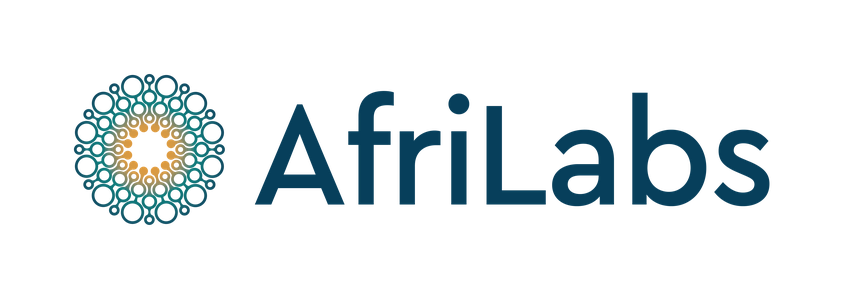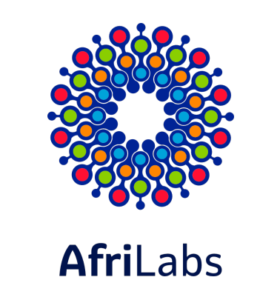AfriLabs: The First Decade
The 21st century has seen rapid technological innovation that uniquely addresses African needs. The innovations cut across multiple sectors. These include banking, healthcare, travel, education, manufacturing and many more. Before 2011, tech hubs across Africa could work on their own. They however lacked an organized platform on which to network, collaborate, and share knowledge. This is the vacuum that AfriLabs’ founders sought to fill.
From five tech hubs in 2011, AfriLabs today is a network organization of 300 innovation centres across 51 African countries. This network has supported African innovation hubs in multiple ways. AfriLabs has made it easier for members to communicate, and thereby share knowledge and best practices. They are also able to co-pilot initiatives and collaborate on projects with relative ease. This increases efficiency and goes a long way in the fulfilment of AfriLabs’ mission: ‘To support innovation hubs and their communities, to raise high potential entrepreneurs that will stimulate economic growth and social development in Africa.’
This being the 10th year of AfriLabs, the team met to ponder on how to make the next ten years even more remarkable for the community of tech hubs. These discussions and brainstorming sessions brought to the fore the need to rebrand and thus began the journey of defining how the new look and feel of AfriLabs will be.
The Second Decade
A crucial aspect of the deliberations revolved around defining the pillars (themes) that would form the basis for the rebrand. We had to grapple with pillars that resonate with the community of innovation enablers all over Africa yet stay true to AfriLabs’ mission and vision for the next 10 years. These pillars had to offer room for the growing needs of the brand yet offer a smooth transition to a brighter and seamless look and feel for AfriLabs.
We described AfriLabs with some of the following adjectives: trustworthy, transparent, excellence, ubuntu, hub-centric, Pan-African, innovation among many others. Of the long list that came out of the sessions, a smaller team sat down to condense them into three main pillars.
Pillar 1: Community
A word that we consistently used during the rebrand brainstorming sessions was, “Community”. We wanted every innovation hub in Africa that is looking for an organization like ours to feel represented. We wanted all Africans in the innovation and entrepreneurship space and those in the diaspora, to feel like part of the community.
At the heart of this pillar are Ubuntu “I am because we are” and Pan-Africanism “a movement that believes in the unification of people of African descent because of their common interest”. These two values guide us to make decisions that always benefit our community.
Therefore, our identity revamping efforts must clearly capture this pillar and its subsets.
Pillar 2: Innovation
We could not hold back from expressing the joy of seeing innovators leveraging the support system of AfriLabs’ member hubs to execute ideas and later emerge as leading entrepreneurs.
A great example is, 3W, a Dakar-based innovator with Jokkolabs, one of our members in Senegal. 3W invented Wizili, a gaming platform for Facebook and has created hundreds of jobs in Senegal.
Stories like 3W’s are the reason we support tech hubs in various ways including funding, collaborative efforts and driving impact through ensuring that all the work they do is measurable and drives change at scale.
With the above in mind, AfriLabs appreciates the changing needs of African tech hubs and intends to adjust accordingly in the coming decade.
Pillar 3: Knowledge Sharing
Evidently, when trying to find specific knowledge about the African innovation space and/or best practices to support innovation, there is not a lot of information available.
Spotting this need, therefore, we saw it fit to increase our knowledge output by providing a reliable platform for both quantitative and qualitative research about the African innovation space and trends on how to enable innovation on the continent. A sort of illumination that Africa is not a dark continent, on the contrary, it is a continent full of innovative ideas by Africans that address the needs that are distinctively African.
We organise the Hubs Learning Week (under the AfriLabs Capacity Building Programme being carried out thanks to AFD’s support through the Digital Africa seed fund) and other workshops/masterclasses to provide a platform for experienced innovation enablers in the community to share from their wealth of knowledge.
Further, we represent the largest Pan African network of technology and innovation hubs and we have access to on-the-ground experiences that help us build high-quality research.
That is why in 2020 we partnered with the Internet giant Mozilla to conduct research aimed at better understanding the African tech innovation ecosystem and identifying new product ideas. The fruits of this research will aid Mozilla’s efforts to reinvest within the African tech ecosystem and support local innovators with scalable ideas that have the potential to impact across the continent.
We have also had an interesting series of research activities and dialogues that have revealed interesting insights with partners such as Djembe Insights and KTN Global Alliance.
Looking into the next 10 years, therefore, we agreed that knowledge sharing will form a significant part of AfriLabs’ service offering.
When we support innovation hubs, when we share quality knowledge and when we put our community first, it means we care. Care causes us to work in a community, it enables us to share knowledge inside the community and to innovate around the problems in our community.
The Brand Identity Direction
The next step for the team was choosing a logo to represent AfriLabs’ new look and feel. This was not a walk in the park as all the first draft logos presented made sound arguments but ultimately, one carried the day based on the teams’ votes, for the following reasons:
- Aesthetic
We were inspired by the Zulu and Maasai neck ornaments as they demonstrate our Pan Africanism, which is one of our values, and our continent-wide reach. This would create the basis for the logo form.
- Form
The old logo has 3 connected dots. We used that element to show the transition into the new decade by multiplying the element and straightening it to show the movement of knowledge and experiences, outwards and inwards, between the hubs and the organisation. This made the logo more apt in representing AfriLabs’ interaction and exchange with the community of hubs.
This interaction involves AfriLabs providing support and knowledge, as well as training and funding from AfriLabs’ partners. The entrepreneurs, in return, provide knowledge and learnings around innovation and the entrepreneurial experience. This is in line with our communal values as an organisation.
- Colour
The designers presented a series of brand identities and the one shown was the chosen design. This version extends the original blue by changing and adding 2 shades of blue, giving it a “bolder” feel, a complementary orange, green and red. The form represents AfriLabs’ Pan African, communal nature while the colours represent the different communities and cultures within the network of hubs and partners.
We however felt that the above colours were too bright and this presented a challenge. What we were looking for was a transition, a way to see the progression of the old logo in the new logo. So, while the form was accepted, the colours were changed to softer tones of orange, green and dark blue. We were sure that these colours would be more profound and represent AfriLabs’ vision.
- Typeface
The font in the above image had been initially chosen. However, we felt it was too mild yet, we were going for a bold feel. We, therefore, chose another font that was bolder and that would represent transformation into a bolder organisation. It also matches the equally bold logo.
The New Logo
After many discussions across the organisation and iterations by the designers, the new logo evolved and now represents our values of ubuntu/pan Africanism, innovation, knowledge sharing, and courage.
Here is the final result:




